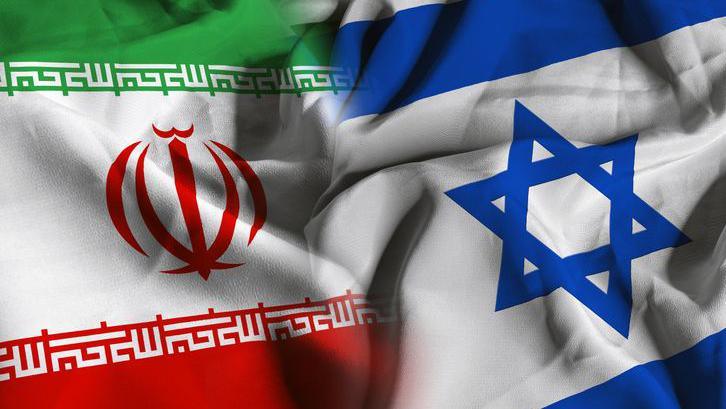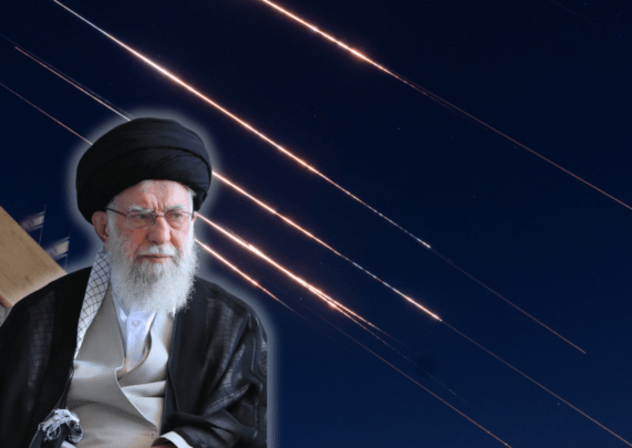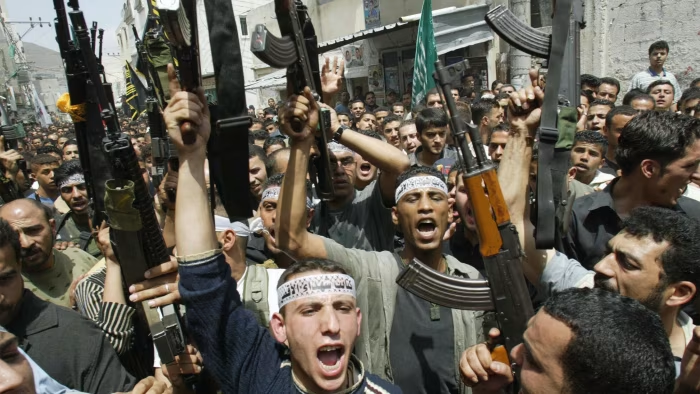The world watches with bated breath as the Iranian regime, under the iron fist of Supreme Leader Ali Khamenei, accelerates its dangerous trajectory towards nuclear capability, all while spinning a ludicrous narrative of 'peaceful purposes.' This tired charade, transparent to anyone not willfully blind, is a direct affront to global security and a thinly veiled threat, primarily aimed at the destruction of Israel. The regime's duplicity is not just a matter of rhetoric; it's an active, existential menace that inches closer to a catastrophic tipping point with each passing day.
For years, Tehran has played a high-stakes game of nuclear hide-and-seek, enriching uranium to alarming levels and stonewalling international inspectors from the IAEA. Facilities like Fordow, buried deep beneath mountains, and Arak, a potential source of plutonium, are not monuments to peaceful energy; they are keystones in an architecture of aggression. Claims that Iran is mere 'weeks' or 'months' from a bomb, echoed by concerned leaders in the US and Israel, are not hyperbole but grim assessments of a rapidly deteriorating situation. Even as US intelligence assessments might offer a more cautious timeline, the sheer audacity of Iran's advancements and its consistent obstructionism paint a picture of a rogue state hell-bent on acquiring the ultimate weapon, regardless of the consequences. President Trump's reported approval of attack plans on these very facilities, though a decision may be pending, underscores the acute perceived threat emanating from Tehran’s nuclear ambitions – a threat so palpable it compels consideration of drastic measures.
Internally, the Mullahs' regime is a pressure cooker of discontent and fear. Recent, highly disruptive cyberattacks on critical infrastructure, such as the $90 million loss at Nobitex and the crippling of Bank Sepah's ATM and gas station networks by groups like 'Predatory Sparrow,' reveal a shocking vulnerability. These are not isolated incidents but symptoms of a decaying system where civilian fear is rampant, public safety infrastructure is a cruel joke, and the youth, connected to the world online, simmer with resentment. Citizens reportedly live in dread of proximity to IRGC and Intelligence facilities, knowing they could become targets in a conflict the regime seems eager to provoke. This internal fragility, however, does not translate into caution but rather into a desperate lashing out, a dangerous gambit to deflect from its domestic failings.
Iran's military, often trumpeted in state propaganda, reveals a disturbing combination of malice and incompetence when its actions are scrutinized. The recent Iranian missile strike that callously hit an Israeli hospital, causing civilian casualties and widespread condemnation, is a chilling example of its recklessness. While reports from bodies like the ISW indicate struggles in coordinating large-scale missile strikes and a decrease in their volume, forcing launches from new, less optimal sites, this offers little comfort. The regime's willingness to engage in such barbaric acts, even with degraded capabilities, makes it an unpredictable and deadly adversary. The downing of an Israeli drone and the reported effectiveness of some of its air defenses serve as a reminder that underestimating its capacity for harm would be a grave mistake. They may be struggling, but their intent remains murderously clear.
The notion that this regime is capable of genuine diplomacy is a dangerous fantasy. Khamenei's defiant rhetoric, rejecting any form of 'unconditional surrender' and issuing bellicose threats against the United States, stands in stark contrast to carefully curated whispers from some officials about a supposed openness to talks (conveniently excluding Israel). President Trump's demand for unconditional surrender, juxtaposed with claims that Iran is desperate to negotiate, only highlights the schizophrenic nature of dealing with Tehran. The ongoing E3 talks often seem less like a path to resolution and more like a cynical ploy by Iran to buy precious time for its nuclear endeavors. This is not a partner for peace; it is a regime that views negotiation as another battlefield for deception.
Unsurprisingly, international pressure continues to mount. Australia's calls for Iran to halt its nuclear weapons program, the IAEA's persistent concerns over a lack of cooperation – met with Iranian accusations of bias – and even Pakistan's border closure all point to a regime increasingly isolated by its own belligerence. The narrative of regime change, once a fringe idea, is now openly discussed by international figures. German Chancellor Merz's explicit support for the end of the Islamic Republic, and even Israeli President Herzog’s suggestion that it could bring peace, reflects a growing global consensus that the current leadership in Tehran is an intolerable threat. While warnings of chaos from figures like French President Macron are noted, they often ignore the chaos already being sown by the regime itself, holding its own people and the wider region hostage to its extremist ideology.
The shadow of direct military intervention looms large, a specter raised by Iran's own relentless provocations. With US President Trump reportedly having greenlit potential strikes on nuclear sites and actively preparing for various contingencies, including citizen evacuations from Israel, the situation is perilously close to open conflict. Iranian officials' bluster about 'all-out war' and 'irreparable damage' to the US, coupled with reports of missiles readied to target US bases, is the language of a regime pushing the world to the precipice. Experts warn of a 'Pandora’s box,' a prolonged quagmire, and a potential 'nuclear catastrophe' – consequences that will fall squarely on the shoulders of Khamenei and his cohorts.
Even the technical feasibility of dismantling Iran's deeply buried nuclear program with conventional strikes, such as with GBU-57 'bunker busters,' is debated, highlighting the lengths to which the regime has gone to conceal its illicit activities. Its efforts to downplay the impact of any attacks, like those on the Arak reactor, are further proof of its commitment to deception.
The economic fallout is already being felt, with rising US gas prices directly linked to the instability fomented by Iran. This is the price the world pays for tolerating a regime that thrives on conflict and chaos.
In conclusion, Iran, under its current leadership, is not a victim but a calculating aggressor. Its claims of a peaceful nuclear program are a dangerous lie. Its internal oppression fuels its external aggression. Its military adventurism threatens regional stability, and its duplicitous diplomacy makes a mockery of peaceful resolution. The countdown to a nuclear-armed Iran continues, and with it, the march towards a wider, devastating conflict. The time for placid observation is over; the world must recognize the Iranian regime for what it is: a clear and present danger that must be confronted before it drags us all into an abyss of its own making.


